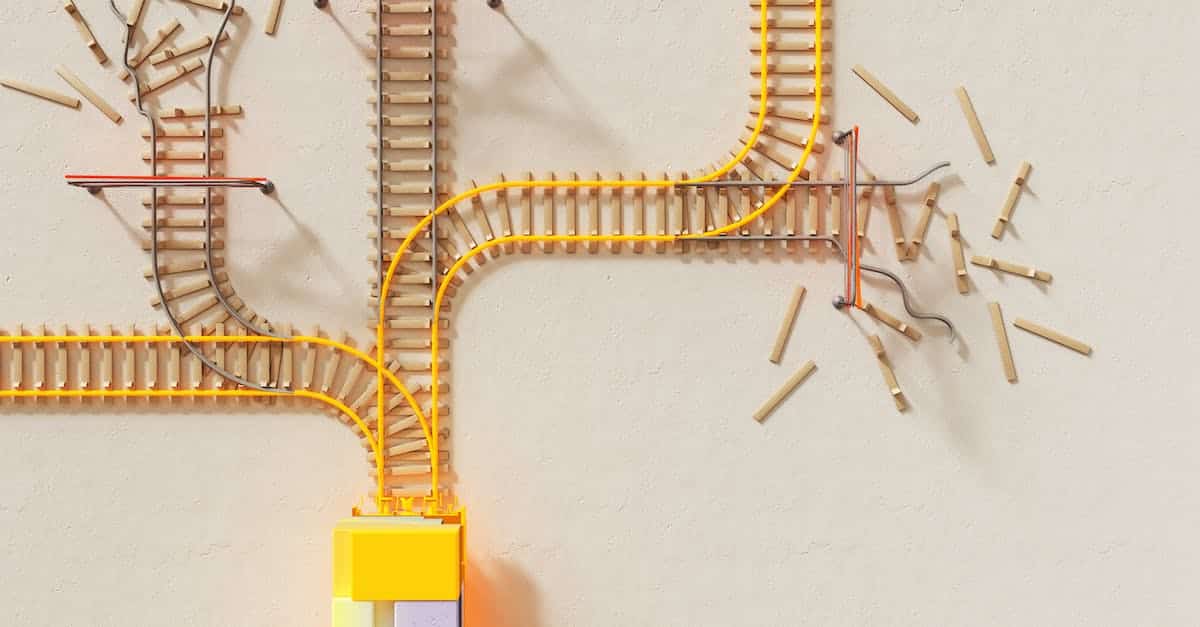Imagine placing bets with confidence, knowing that the odds aren’t stacked against you. Blockchain technology is revolutionizing the casino industry by bringing transparency and fairness to the forefront. You’re about to dive into how this innovative tech is making casino games more trustworthy than ever.
You’ll explore the mechanics of blockchain’s immutable ledger and how it’s applied to ensure that each roll of the dice, spin of the wheel, or deal of the cards is verifiably random and untampered. This isn’t just a win for players; it’s a new dawn for the integrity of online gaming.
Stay tuned as we unveil the intricate relationship between blockchain technology and casino game fairness, a topic that could redefine gambling as you know it.
Table of Contents
ToggleHow Blockchain Technology Is Revolutionizing the Casino Industry
As you delve deeper into the impact of blockchain on the casino industry, you’ll discover its role isn’t just revolutionary – it’s transformative. Imagine a world where every transaction, every game result, every win, and loss are recorded indelibly. This is reality for modern blockchain-powered casinos.
- Provable Fairness: With blockchain technology, the concept of provable fairness becomes more than just a buzzword. It’s a tangible benefit where the authenticity of each game can be verified by anyone at any time. This eliminates the fear of biased outcomes which has plagued the industry for years.
- Enhanced Security: Blockchain also fortifies the security framework of online gaming platforms. Your digital assets and personal data are shielded by state-of-the-art cryptography, significantly reducing the risk of hacking and fraud.
Transparency Redefined
Transparency is no longer a mere promise; it’s an operational feature. The transparency blockchain brings ensures that the inner workings of casino games are open for scrutiny. Data like payout rates and odds are no longer a black box, providing you with a level of insight and trust previously unattainable.
- Immutable Records: Every wager and outcome is logged onto the blockchain ledger, immutable and eternal. This means that players and regulators alike can trace the history of bets to prevent any disputes over winnings.
The Edge in Efficiency
The agility of the blockchain isn’t just about security or fairness; it’s about streamlining operations. By automating payments and record-keeping, casinos can offer faster payouts and reduce operational costs. This efficiency is not just beneficial for the casino operators but also enhances your gaming experience.
- Smart Contracts: These self-executing contractual states ensure that winnings are paid out instantly once the predefined rules of the game are met. There’s no longer an agonizing wait for manual processing, meaning you get your funds quicker.
As you navigate through the ever-evolving landscape of online gambling, it’s clear that blockchain is the cornerstone of a new era. With undeniable benefits for players and operators alike, the adoption of blockchain technology within the casino industry continues to gain momentum. It’s reshaping not just how you play, but also how you trust and how the entire industry operates.
Understanding the Mechanics of Blockchain and Its Immutable Ledger
When diving into the complex world of blockchain technology, you’ll find that its core component is the immutable ledger. This decentralized ledger is a continuously growing list of records, known as blocks, that are linked using cryptography. Each block contains a cryptographic hash of the previous block, a timestamp, and transaction data. Once recorded, the data in any given block cannot be altered retroactively without the alteration of all subsequent blocks, which requires the consensus of the network majority.
This characteristic of blockchain is what has revolutionized online casino gaming. The technology ensures that once a game’s outcome is recorded on the blockchain, it’s permanently written into the ledger. Any attempt to change it would be easily detected by players and regulators alike.
Here’s a breakdown of how the blockchain works in the context of casino gaming:
- Transaction Data: In a gaming scenario, each bet you place is a transaction. This transaction is recorded on the blockchain, detailing the amount, time, and conditions of your bet.
- Block Creation: Your bet is grouped with others into a block, awaiting validation by a network of computers, often referred to as nodes.
- Validation and Hash: The nodes verify the transactions through complex algorithms in a process called mining. Upon successful validation, the block is given a unique hash.
- Hash Links: This hash, along with the hash of the previous block, is used to create the chain of blocks, a virtually unbreakable link that secures the whole blockchain.
With these mechanics, blockchain provides a high level of security and integrity in online casino gaming. The immutable nature of the blockchain ledger means that the game’s results are verifiably fair and transparent, while also ensuring that payments are prompt and indisputable. You’ll find that this technology is reshaping the trust model within the industry, as it takes the power out of the hands of the few and places it into the hands of the many, namely the players and regulators who maintain and verify the blockchain.
Ensuring Verifiably Random and Untampered Casino Games
Blockchain technology stands as a bulwark against the manipulation of game outcomes. In traditional online casinos, you’re often required to trust that the games are fair, without seeing the behind-the-scenes algorithms that determine random results. Blockchain changes the playing field entirely, offering provable fairness and complete transparency.
A prominent feature of blockchain-based casino games is their integration with smart contracts. These digital contracts execute automatically once predetermined conditions are met, leading to the following benefits:
- Infallible Fairness: The smart contract generates random numbers for game outcomes, ensuring each roll of the dice or spin of the reel is completely independent and verifiably random.
- Transparency: Every transaction and game outcome is recorded on the public ledger, accessible for your review at any time.
- No Human Intervention: Since smart contracts manage the games, human tampering is virtually impossible.
Blockchain technology reinforces its transparency by utilizing Random Number Generators (RNGs) that are blockchain-based. Here’s why that’s important:
- Open Source RNGs: These allow you and external auditors to inspect and verify the randomness code.
- Decentralized Verification: By decentralizing the process, multiple participants validate the randomness of the outcomes, dispelling any doubts over fairness.
Moreover, blockchain casinos capitalize on the cryptographic principles of the technology. Each block has a unique hash that links it to the previous one, creating a tamper-evident chain. Game data integrated into these blocks carries immutable characteristics—once inputted, it’s permanently fixed.
For instance, a player’s bet and the game’s outcome are encapsulated within a single block. Altering this would require an astronomical amount of computational power to override the entire network consensus. The cost and effort needed for such a feat are prohibitively high, making tampering attempts not only impractical but ludicrous.
The synchronization of RNGs and smart contracts facilitated by blockchain effectively makes online casino gaming more secure and trustworthy than ever. As a gamer, you’re placed in a position of unprecedented power, able to verify the integrity of games in real-time.
The Benefits of Blockchain for Players and Online Gaming Integrity
Blockchain technology ushers in a new era of transparency and trust that significantly benefits you as a player. With it, online gaming integrity climbs to unprecedented levels, addressing longstanding concerns over the fairness of games.
Instantaneous Verification and Trust
Blockchain’s distributed ledger technology means that all gaming outcomes are recorded in real-time. As a player, you can instantly verify the results of your game. There’s no waiting for third-party verification or questioning the legitimacy of the winnings – it’s all out there for you to inspect.
Enhanced Security and Privacy
Security is paramount in online gaming and blockchain amplifies this by:
- Encrypting transaction data
- Minimizing personal information disclosure
- Eliminating single points of failure
Your financial transactions and bets are cryptographically secure, adding layers of protection against potential fraud and hacking.
Reduced Operational Costs and Better Odds
The decentralization aspect of blockchain reduces the need for intermediaries. This, in turn, cuts down on operation costs for casinos, savings that can be passed on to you in the form of better odds and higher payouts.
Player Empowerment
Blockchain shifts the balance of power towards you, the player. With smart contracts and open-source RNGs, you’re no longer at the mercy of the house’s hidden mechanisms. Your ability to directly check the fairness of a game restores your autonomy and makes gaming a truly free-market experience.
Blockchain’s incorporation into the casino industry isn’t just a fad; it’s a full-fledged venture into enhancing the fairness of games for you and ensuring the integrity of online gaming remains intact. The technology not only levels the playing field but also rebuilds the trust that’s been worn down by years of opaque practices. As blockchain becomes more widespread, anticipate a gaming environment where fairness is the standard, not the exception.
Redefining Gambling with the Relationship between Blockchain and Casino Game Fairness
The integration of blockchain technology into online gambling is not just changing the game; it’s rebuilding the entire playground. Traditional concerns about the fairness and transparency of casino games are being addressed head-on with decentralized ledger technology. Blockchain’s innate ability to create an immutable record of every bet, win, and loss ensures that you can verify the integrity of every game you play.
Within a blockchain-based casino, smart contracts automate payouts based on game outcomes. This automation not only secures transactions but also removes human error or manipulation from the equation. By leveraging blockchain, online casinos can offer you a level of trust and fairness once thought impossible in digital gambling environments.
Transparency in blockchain casinos extends beyond game outcomes. The use of open source technology means that the algorithms determining those outcomes – like RNGs – are publicly verifiable. This practice is miles away from the opaque processes within traditional online casinos where the internal workings are often kept secret.
- Smart contracts eliminate the need for trusting a third party.
- Publicly auditable RNGs reassure you about the integrity of the games.
- The immutable records of transactions minimize disputes and increase trust.
A key component of this trust revolution is cryptocurrency. By betting with digital currencies, you’re not just transacting on a transparent platform but also ensuring that your deposits and withdrawals are fast and secure. You’ll see reduced fees and enhanced privacy – benefits that come from the decentralized nature of cryptocurrencies.
Blockchain doesn’t just protect your interests; it provides you with direct control over your funds and gaming outcomes. You’re no longer relying on a gaming commission or a casino’s reassurances; instead, you’re empowered with the tools to verify everything yourself. Blockchain technology in casinos isn’t simply about leveraging digital trends; it’s about redefining the relationship between randomness and fairness, ensuring that every roll of the dice and spin of the reel can be trusted.
Conclusion
Blockchain technology is a game-changer for the casino industry, ensuring that your gaming experience is fair and secure. By leveraging smart contracts and RNGs on the blockchain, you’re guaranteed transparency and honesty in every game you play. This innovation isn’t just about keeping games fair—it’s about rebuilding your trust in online gaming. With blockchain, you’re not just a player; you’re a confident participant in a system designed for integrity. Embrace the change as blockchain redefines gaming fairness, making every moment you spend at online casinos a trustworthy experience.
Frequently Asked Questions
What is the role of blockchain technology in the casino industry?
Blockchain technology provides a transparent and secure platform for online gaming, ensuring games are fair and secure against tampering, thus revolutionizing the casino industry.
How does blockchain ensure fairness in casino games?
Blockchain ensures fairness in casino games by utilizing smart contracts and blockchain-based Random Number Generators (RNGs) to eliminate human intervention and ensure verifiable fairness.
What are the benefits of blockchain-based RNGs?
Blockchain-based Random Number Generators (RNGs) offer open source verification and are decentralized, enhancing the transparency and fairness of the gaming process.
How does blockchain technology affect game data integrity?
Blockchain’s cryptographic principles make game data immutable and tamper-evident, ensuring high integrity and preventing any form of manipulation in casino games.
What advantages does blockchain technology offer to players?
Blockchain offers players instantaneous verification, enhanced security and privacy, reduced operational costs with better odds, and greater empowerment and control over the gaming process.
Is blockchain technology simply a trend in the casino industry?
No, blockchain technology is not just a trend; it represents a significant step towards enhancing game fairness and rebuilding trust within the online gaming industry.
How does blockchain redefine randomness and fairness in casinos?
Blockchain technology redefines the relationship between randomness and fairness in casinos by ensuring that every roll of the dice and spin of the reel can be verified and trusted.






















